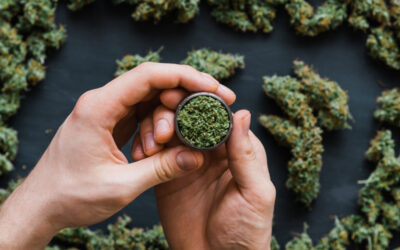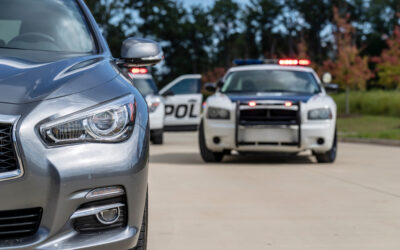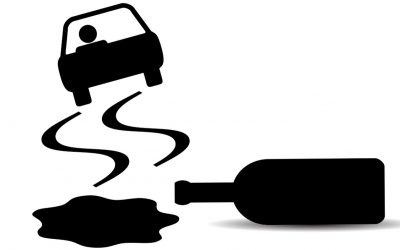In California, the legal definition of drunk driving is operating a vehicle with .08% BAC (blood alcohol content) or higher. Typically, law enforcement will use a breath test to determine your BAC. If it reads at or above .08%, you could face serious criminal repercussions with a DUI.
However, if you have used a product like mouthwash, you may have traces of alcohol in your mouth which throws off the test. As a result, you could test as more than .08% even if you are stone sober. This is known as the “mouth alcohol” defense, and it works in many cases.
How Do Breath Tests Work and How Does Mouth Alcohol Affect Them?
Breath tests work by measuring air from deep within your lungs, known as alveolar air. This is why you are required to blow a long, continuous breath into the device. This allows the breathalyzer to measure the percentage of alcohol vapor released by blood flowing through your lungs. The result is your BAC that shows how intoxicated you are.
The problem is that other sources of alcohol vapor can interfere with the test, even if you are not intoxicated. For example, imagine that you rinsed your mouth with an alcohol-based mouthwash like Listerine shortly before taking the test.
Your mouth would still taste and smell like mouthwash because there is still some alcohol in your mouth. This alcohol releases its own vapors, which can and will interfere with the test. In some cases, they could affect the results so seriously that you appear to “fail” the test (score higher than .08%) even if you were not drinking.
Can Breath Mints, Dentures, Tobacco, etc. Cause Mouth Alcohol?
Yes. There are many possible sources for mouth alcohol other than mouthwash. These can include:
- Breath mints and breath sprays which sometimes have small amounts of alcohol
- Chewing tobacco which often contains pure ethyl alcohol
- Herbal medicines such as tinctures which contain small amount of alcohol
- Some cough syrups, if they are alcohol-based
- Dentures, dental bridges, and dental caps which can trap alcohol consumed earlier
- Burping or vomiting after drinking alcohol
- GERD or acid reflux
Some other factors can mimic the effects of mouth alcohol, like eating a low carb or ketogenic diet.
Can I Use the Mouth Alcohol Defense If I Was Drinking?
This is actually quite common. It’s important to remember that it’s not necessarily illegal to have a few drinks and drive. It is only illegal under California Vehicle Code (CVC) § 23152(b) if your BAC is .08% or more. Under other California DUI laws, it’s only illegal if the alcohol-impaired your driving. So, simply having some alcohol in your system is not enough to convict you of DUI.
That means that, hypothetically, you could have had two beers and gotten in the car with a BAC of .05% and no impairment to your driving. However, if you were then pulled over and given a breath test, mouth alcohol could cause you to falsely read as .08% or above. In other words, the two beers you drank didn’t put you over the limit; the mouth alcohol did.
Do Police Check for Mouth Alcohol Before Administering the Test?
In theory, yes. California law enforcement officers should observe a 15 minute “observation period” immediately before any DUI breath test. This observation period is considered to give them time to make sure that you do not:
- Burp
- Vomit
- Drink anything
- Use any breath products
This is supposed to reduce the risk of mouth alcohol affecting your results. But, unfortunately, it doesn’t always work. First of all, police are busy and are often distracted with paperwork and other activities during the “observation period,” meaning they may not be observing you closely at all.
Secondly, 15 minutes may not be enough time for mouth alcohol to subside, depending on the source of the mouth alcohol. Finally, you can potentially use the mouth alcohol defense whether or not police observed you.
Do Slope Detectors Prevent Mouth Alcohol from Affecting a Breath Test?
Not always. A slope detector is a device added to some breath test machines, which is supposed to screen out the impact of mouth alcohol and give a “pure” reading from deep lung air. Unfortunately, two factors make the slope detector unreliable:
- Operator error
- The device may not be functioning during your test, meaning you get a false result that the officers believe is “pure”
For this reason, a DUI lawyer may still dispute the results of a breath test even if a slope detector was used.
Mouth Alcohol Is a Valid Defense
Even though a mouth alcohol defense sounds like a silly way to challenge a DUI, the truth is that it has helped many people in their fight. Therefore, mouth alcohol is a valid defense to use so long as you have an attorney by your side that can help you.
How Can Mouth Alcohol Defense Help Me Win My DUI Case?
There is lots of evidence you can use depending on the source of the mouth alcohol. Possible evidence you can use may include:
- Receipts for mouthwash/breath spray products or the presence of such products in the “inventory search” police conducted of your vehicle
- Restaurant or bar receipts showing exactly what you ate or drank before driving
- Eyewitness accounts that you used a product that may cause mouth alcohol
- Eyewitness accounts that you were experiencing heartburn, indigestion, or burping
- Medical documents showing that you have braces, dentures, or dental fixtures or, alternately, that you have GERD/acid reflux
Evidence doesn’t last long. So, it’s best to get started collecting it right away. If you’re having trouble knowing where to even begin building your defense, you should get in touch with a Los Angeles DUI attorney today.
How Can an Attorney Help Me with My Mouth Alcohol Defense?
An attorney can help you win your DUI case with a mouth alcohol defense in several ways, including:
- Helping you gather evidence related to your case
- Obtaining any medical records
- Obtaining any police reports
- Consulting with experts and witnesses to get supporting testimony in your defense
- Filing a subpoena for your breathalyzer results and other information pertaining to your case
As shown by the list above, your attorney can do more than just represent your case in court. Hiring a lawyer to help you can mean all the difference when it comes to DUI cases.
Schedule an Appointment with a DUI Attorney Today
If you need answers to specific questions regarding your case, you should get a free consultation with a reputable Los Angeles DUI attorney. Learn more about the mouth alcohol defense and any other legal defense available for your case. Contact us online or over the phone to schedule an appointment with us at no obligation or risk to you.






